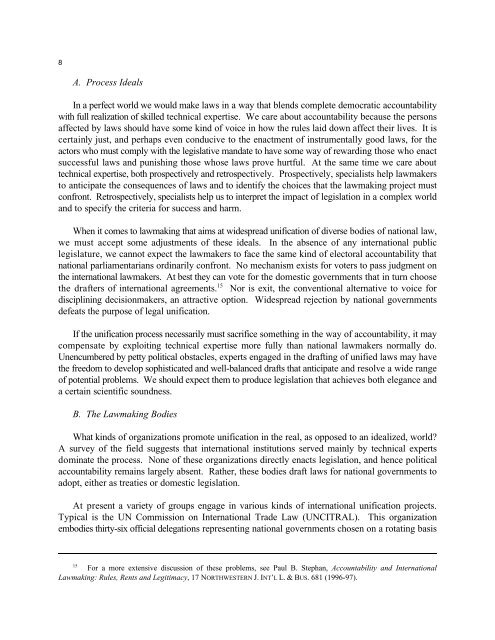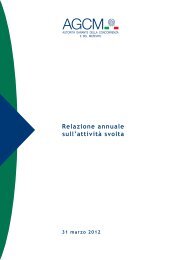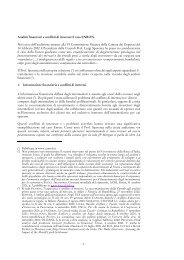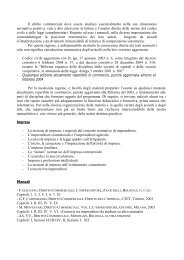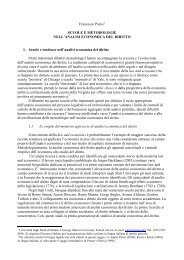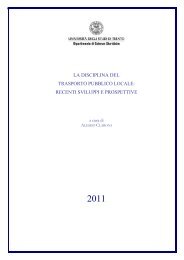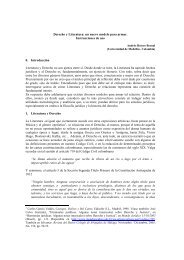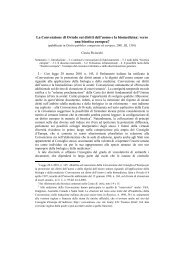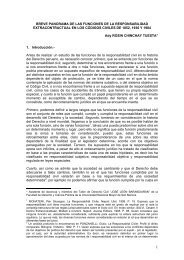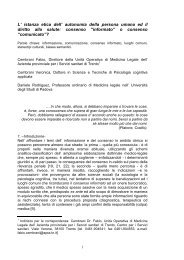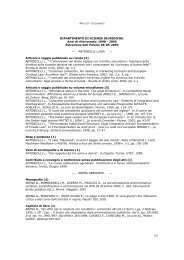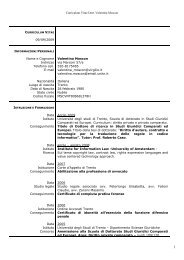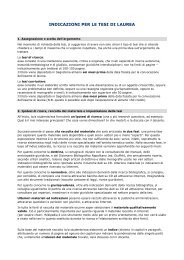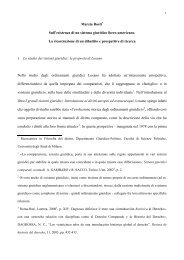The Futility of Unification and Harmonization in International ...
The Futility of Unification and Harmonization in International ...
The Futility of Unification and Harmonization in International ...
You also want an ePaper? Increase the reach of your titles
YUMPU automatically turns print PDFs into web optimized ePapers that Google loves.
8A. Process IdealsIn a perfect world we would make laws <strong>in</strong> a way that blends complete democratic accountabilitywith full realization <strong>of</strong> skilled technical expertise. We care about accountability because the personsaffected by laws should have some k<strong>in</strong>d <strong>of</strong> voice <strong>in</strong> how the rules laid down affect their lives. It iscerta<strong>in</strong>ly just, <strong>and</strong> perhaps even conducive to the enactment <strong>of</strong> <strong>in</strong>strumentally good laws, for theactors who must comply with the legislative m<strong>and</strong>ate to have some way <strong>of</strong> reward<strong>in</strong>g those who enactsuccessful laws <strong>and</strong> punish<strong>in</strong>g those whose laws prove hurtful. At the same time we care abouttechnical expertise, both prospectively <strong>and</strong> retrospectively. Prospectively, specialists help lawmakersto anticipate the consequences <strong>of</strong> laws <strong>and</strong> to identify the choices that the lawmak<strong>in</strong>g project mustconfront. Retrospectively, specialists help us to <strong>in</strong>terpret the impact <strong>of</strong> legislation <strong>in</strong> a complex world<strong>and</strong> to specify the criteria for success <strong>and</strong> harm.When it comes to lawmak<strong>in</strong>g that aims at widespread unification <strong>of</strong> diverse bodies <strong>of</strong> national law,we must accept some adjustments <strong>of</strong> these ideals. In the absence <strong>of</strong> any <strong>in</strong>ternational publiclegislature, we cannot expect the lawmakers to face the same k<strong>in</strong>d <strong>of</strong> electoral accountability thatnational parliamentarians ord<strong>in</strong>arily confront. No mechanism exists for voters to pass judgment onthe <strong>in</strong>ternational lawmakers. At best they can vote for the domestic governments that <strong>in</strong> turn choose15the drafters <strong>of</strong> <strong>in</strong>ternational agreements. Nor is exit, the conventional alternative to voice fordiscipl<strong>in</strong><strong>in</strong>g decisionmakers, an attractive option. Widespread rejection by national governmentsdefeats the purpose <strong>of</strong> legal unification.If the unification process necessarily must sacrifice someth<strong>in</strong>g <strong>in</strong> the way <strong>of</strong> accountability, it maycompensate by exploit<strong>in</strong>g technical expertise more fully than national lawmakers normally do.Unencumbered by petty political obstacles, experts engaged <strong>in</strong> the draft<strong>in</strong>g <strong>of</strong> unified laws may havethe freedom to develop sophisticated <strong>and</strong> well-balanced drafts that anticipate <strong>and</strong> resolve a wide range<strong>of</strong> potential problems. We should expect them to produce legislation that achieves both elegance <strong>and</strong>a certa<strong>in</strong> scientific soundness.B. <strong>The</strong> Lawmak<strong>in</strong>g BodiesWhat k<strong>in</strong>ds <strong>of</strong> organizations promote unification <strong>in</strong> the real, as opposed to an idealized, world?A survey <strong>of</strong> the field suggests that <strong>in</strong>ternational <strong>in</strong>stitutions served ma<strong>in</strong>ly by technical expertsdom<strong>in</strong>ate the process. None <strong>of</strong> these organizations directly enacts legislation, <strong>and</strong> hence politicalaccountability rema<strong>in</strong>s largely absent. Rather, these bodies draft laws for national governments toadopt, either as treaties or domestic legislation.At present a variety <strong>of</strong> groups engage <strong>in</strong> various k<strong>in</strong>ds <strong>of</strong> <strong>in</strong>ternational unification projects.Typical is the UN Commission on <strong>International</strong> Trade Law (UNCITRAL). This organizationembodies thirty-six <strong>of</strong>ficial delegations represent<strong>in</strong>g national governments chosen on a rotat<strong>in</strong>g basis15For a more extensive discussion <strong>of</strong> these problems, see Paul B. Stephan, Accountability <strong>and</strong> <strong>International</strong>Lawmak<strong>in</strong>g: Rules, Rents <strong>and</strong> Legitimacy, 17 NORTHWESTERN J. INT’L L. & BUS. 681 (1996-97).


